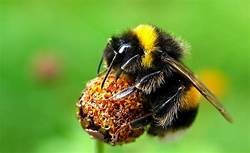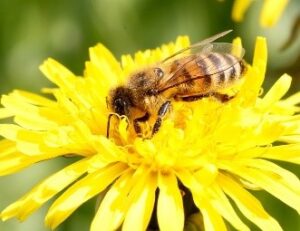By: Prof. Edward Wiafe Debrah, an Environmentalist and Pro-Vice-Chancellor of the University of Environment and Sustainable Development (UESD)
World Bee Day is celebrated annually on May 20 every year to raise awareness about the importance of bees and other pollinators for the ecosystems, food production, and biodiversity. The United Nations designated this day to highlight the critical role bees play in pollinating flowers and crops, which is essential for the survival of many plants and the production of fruits, vegetables, and seeds.
Significance of World Bee Day
- Pollination and Food Security: Bees are vital pollinators, affecting 35% of global agricultural land and improving the production of 87 of the leading food crops worldwide. Without bees, many of the foods we rely on, such as fruits, nuts, and vegetables, would see significant declines in production.
- Biodiversity: Bees contribute to the health of ecosystems by supporting the growth of trees, flowers, and other plants, which serve as food and shelter for other creatures. This biodiversity is crucial for ecosystem resilience and the overall health of the environment.
- Economic Impact: The economic value of pollination services provided by bees is enormous, estimated to be worth billions of dollars annually. This includes the agricultural sector, which depends heavily on pollination for crop yields and quality.
- Environmental Indicators: Bees are sensitive to environmental changes and serve as indicators of the health of our ecosystems. A decline in bee populations can signal broader environmental issues, such as habitat loss, pollution, and climate change.
Challenges Facing Bees
Bees face numerous threats, including:
- Habitat Loss: Urbanization, deforestation, and agricultural expansion reduce the natural habitats available to bees.
- Pesticides: The use of pesticides, especially neonicotinoids, has been linked to declines in bee populations.
- Climate Change: Changes in climate can disrupt the availability of flowers and affect bee behavior and distribution.
- Diseases and Pests: Bees are susceptible to diseases and parasites, such as the Varroa mite, which can devastate colonies.
How to Support Bees
- Plant Bee-Friendly Flowers: Create gardens or green spaces with a variety of plants that bloom at different times of the year, providing bees with a continuous source of nectar and pollen.
- Avoid Pesticides: Use natural alternatives to pesticides or apply them in a way that minimizes exposure to bees.
- Support Local Beekeepers: Purchase honey and other products from local beekeepers who practice sustainable beekeeping.
- Advocate for Bees: Support policies and initiatives that protect bees and their habitats, and raise awareness about the importance of bees in your community.
Celebrating World Bee Day 2024
World Bee Day 2024 is an opportunity for individuals, communities, and organizations to come together to save bees, biodiversity, and ecosystems.



